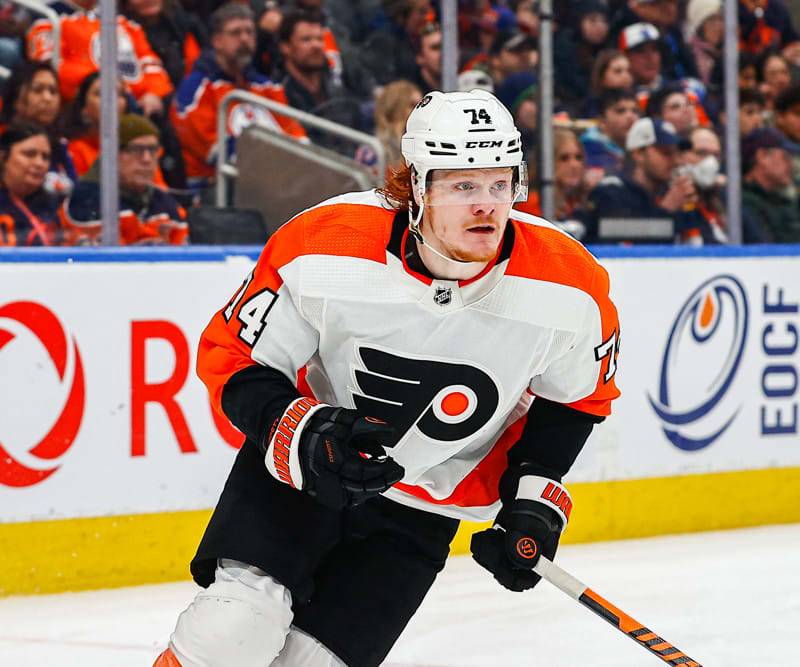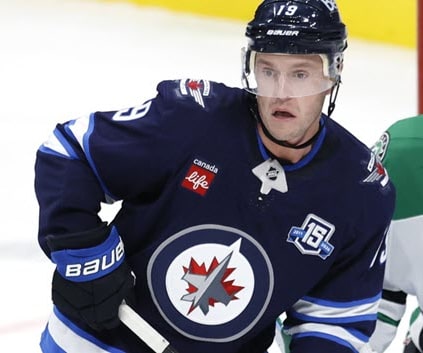2025 Stats
G
13
A
14
PP Pts
11
+/-
-6
PIM
12
ROS Projections
2025 Fantasy Outlook
Zucker accounted for 21 goals and 53 points across 73 regular-season outings in 2024-25. He earned the second-highest point total of his 14-year career while benefiting tremendously from his power-play production. During power-play situations, Zucker led the Sabres with 11 goals and tied for the team lead with 21 points. However, he was ice cold down the home stretch, scoring only three times on 46 shots and posting nine points in 20 appearances. He could drop below the 50-point plateau in 2025-26 if he maintains a bottom-six role, but a spot on the first power-play combination could help him stay around that milestone. Read Past Outlooks

Seven points in last six games
Zucker scored twice Saturday in a 5-0 win over the Islanders.
ANALYSIS
Zucker's goal 33 seconds into the second frame opened the scoring and stood as the winner. He struck just 25 seconds into the third period to push the score to 3-0. Zucker has three goals in his last two games, and he has points in five of his last six outings (three goals, four assists). He has 13 shots in that span. Zucker may be available in your league -- he's woefully under-rostered in a lot of formats. You can use his heat. He has 13 goals, 14 assists, 11 PPP (six PPG) and 69 shots in 32 games this season.
Zucker's goal 33 seconds into the second frame opened the scoring and stood as the winner. He struck just 25 seconds into the third period to push the score to 3-0. Zucker has three goals in his last two games, and he has points in five of his last six outings (three goals, four assists). He has 13 shots in that span. Zucker may be available in your league -- he's woefully under-rostered in a lot of formats. You can use his heat. He has 13 goals, 14 assists, 11 PPP (six PPG) and 69 shots in 32 games this season.
NHL Stats
Loading Skater Stats...
2025 NHL Game Log
2025
2024
2023
2022
2021
2020
2019
2018
2017
2016
2025 NHL Game Log
Loading Skater Game Log...
2025–26 Time On Ice Stats
- Average Time On Ice: 15:47
- Average Power Play TOI: 3:08
- Average Short-Handed TOI: 0:00
Ice Time
Power Play
Short-Handed
2023–24
14:02
1:45
0:01
2023–24
13:13
1:16
0:00
2024–25
16:00
2:52
0:00
2025–26
15:47
3:08
0:00
Sabres Depth Chart
Our full team depth charts are reserved for RotoWire subscribers.
Subscribe Now
Sabres Power Play Depth Chart
Our full team depth charts are reserved for RotoWire subscribers.
Subscribe Now
Past Fantasy Outlooks
2024
2023
2022
2021
2020
2019
2018
2017
2016
2015
2014
2013
2011
2010
Zucker is a solid middle-six forward who occasionally performs above that level. The 2023-24 campaign was a particularly rough season for him, though. He finished with 14 goals and 32 points in 69 regular-season contests between Arizona and Nashville. Now with Buffalo on a one-year, $5 million contract, Zucker will be looking to rebound, but it remains to be seen if he'll be given a big enough role to truly thrive. The Sabres have enough depth to conceivably use him on the third line, which would likely limit him to 30-40 points. However, under ideal circumstances, the 32-year-old might exceed the 20-goal and 40-point milestones.
More Fantasy News

Sets tone early in win
Zucker scored a goal in a 4-2 win over the Canadiens on Thursday.
ANALYSIS
Subscribe now to instantly reveal our take on this news.
Subscribe now to instantly reveal our take on this news.

Earns pair of assists
Zucker notched a pair of assists, three shots on goal and two hits in Saturday's 5-4 overtime loss to the Wild.
ANALYSIS
Subscribe now to instantly reveal our take on this news.
Subscribe now to instantly reveal our take on this news.

Two points including GWG
Zucker scored the game-winning goal on the power play and added an even-strength assist in Thursday's 5-2 win over the Rangers.
ANALYSIS
Subscribe now to instantly reveal our take on this news.
Subscribe now to instantly reveal our take on this news.

Set to return Tuesday
The Sabres announced Monday that Zucker (lower body) is expected to return to the lineup for Tuesday's game against the Canucks.
ANALYSIS
Subscribe now to instantly reveal our take on this news.
Subscribe now to instantly reveal our take on this news.

Targeting post-Christmas return
Zucker (lower body) might be back following the Christmas break, according to head coach Lindy Ruff, Paul Hamilton of WGR Sports Radio 550 reports Wednesday.
ANALYSIS
Subscribe now to instantly reveal our take on this news.
Subscribe now to instantly reveal our take on this news.
Latest Fantasy Rumors

Working with No. 1 power play
Zucker, who has been sidelined by a lower-body injury, practiced with the No. 1 power-play unit ahead of Tuesday's game versus Vancouver, Heather Engel of NHL.com reports.
ANALYSIS
All signs seem to point to a return for Zucker on Tuesday, though he hasn't been officially activated off injured reserve yet. In addition to joining the top power-play group, the veteran winger should retake a top-six role, perhaps on the first line with Tage Thompson and Josh Doan.
All signs seem to point to a return for Zucker on Tuesday, though he hasn't been officially activated off injured reserve yet. In addition to joining the top power-play group, the veteran winger should retake a top-six role, perhaps on the first line with Tage Thompson and Josh Doan.
















